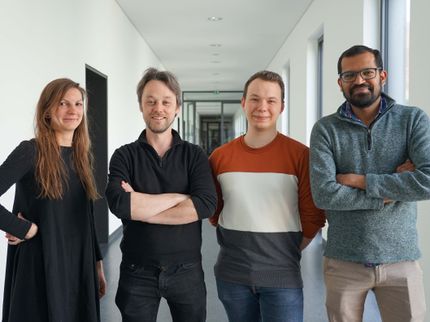Cytheris announces results of phase IIa study indicating that recombinant interleukin-7 (CYT107) expands CD4 T-Cells in gut mucosa of chronically HIV infected immunological non-responder patients
Advertisement
Cytheris SA announced results of a multi-center Phase IIa study designed to investigate the potential of Interleukin-7 (CYT107) therapy to reconstitute CD4 T-cells in chronically HIV-1 infected patients whose CD4 T-cell counts remained low despite treatment with anti-retroviral-therapies (HAART). In addition to providing further evidence of the ability of IL-7 to stimulate the expansion of CD4 and CD8 T-cells in peripheral blood, the results demonstrate the importance of IL-7 in stimulating T-cell repopulation of the lymphoid tissue layer in the mucous membrane of the GI tract. This effect, previously demonstrated in SIV infected monkeys, is now confirmed by analysis of rectosigmoid biopsies in this study of HIV infected patients defined as Immunological Non-Responders (INR). The analysis of these mucosal gut biopsies shows a 3.93-fold increase in CD4 T-cell counts following IL-7 treatment. The data were presented at the 2011 Conference on Retroviruses and Opportunistic Infections (CROI) held in Boston, February 27–March 2.
“CD4 T-cell depletion in gut mucosa is an early and key pathogenic event in HIV infection that is associated with T-cell activation,” said Michel Morre, DVM, president and CEO of Cytheris. “Despite successful anti-retroviral therapy (HAART), significant morbidity and mortality persists in HIV infection, particularly in patients who fail to restore normal CD4 T-cell counts. The results of the current study suggest that IL-7, which targets expansion of the T-cell pool in both peripheral blood and mucosal sites, may be able to play a pivotal role in immune restoration in chronic HIV infection.”
Results of the Phase IIa (INSPIRE 2) Study
INSPIRE 2 is an open-label, multicenter Phase IIa study of CYT107 (IL-7) in chronically HIV-infected persons with CD4 T-cell counts between 101-400 cells/mm3 and plasma HIV RNA <50 copies/mL. Twelve patients were enrolled and received 20 mcg/kg/week of CYT107 for 3 weeks. All were evaluated at the planned primary end point at week 12 (CD4 expansion).
The 12 enrolled patients received three weekly injections of CYT107 that were clinically well tolerated and without serious adverse events. Seven patients had transient increases in HIV RNA values (<500 copies/mL). Median CD4 and CD8 T-cell counts were 272 and 554 cell/mm3 at baseline, increasing to 679 and 986 cells/mm3 at week 12, respectively. Mean values and paired t-tests were used for statistical analyses. CYT107 also decreased PD-1 frequency, a marker of T cell exhaustion, in both CD4 and CD8 T-cells at W12 (p=0.008 and p=0.02). The decrease of PD-1 frequency on CD4 T-cells occurred as early as two weeks following the last administration of CYT107 (day 28, 1.8-fold decrease p=0.003).
Twelve patients underwent immunophenotypic analyses of cryopreserved PBMC by flow cytometry at baseline and at week 12. A sustained increase of the gut homing receptor alpha 4 beta 7 integrin frequency on peripheral CD4 and CD8 T-cells was noted (1.4-fold in both) as early as day seven post first CYT107 administration (t test; p <0.002), with a peak increase at day 14 (p=0.0001). At week 12 alpha 4 beta 7 remained elevated on peripheral CD8 (p=0.009) on T-cells.
A subset of 4 patients underwent rectosigmoid biopsies both at baseline and between weeks 10-24. Mucosal gut biopsy analysis showed an increase in both CD4 T-cell frequency (38.85 +/- 9.07 pre vs. 53.08 +/- 11.52 post p=0.0273) and counts (106 CD4/gr tissue: 2.29 +/- 1.15 pre vs. 9.01 +/- 7.85 post p=0.1709).






















































